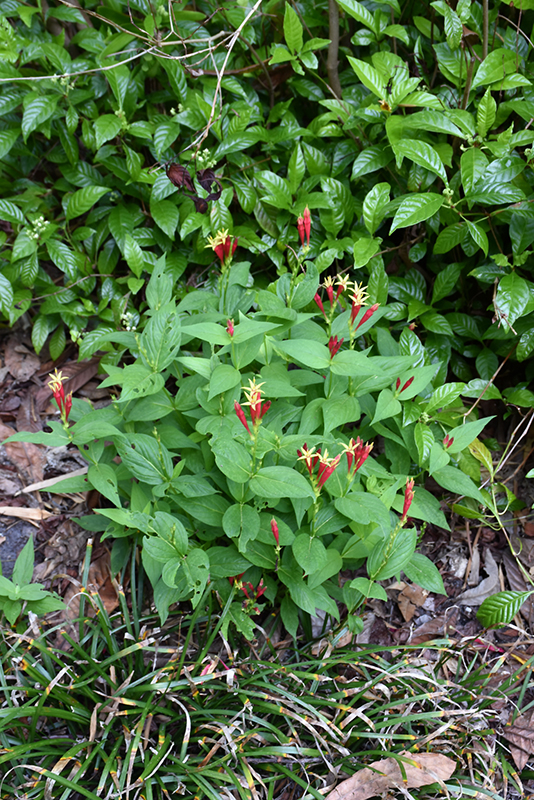Height: 24 inches
Spacing: 10 inches
Sunlight:
![]()
![]()
Hardiness Zone: 4b
Other Names: S. marylandica, Pinkroot, Wormgrass, Starbloom
Description:
A beautiful woodland plant producing bright red tubular flowers with starry yellow tips and throats; avoid transplanting once established; excellent for border fronts, bright shade areas, and containers; deadhead to promote re-blooming in summer
Ornamental Features
Indian Pink features dainty scarlet tubular flowers with buttery yellow throats and yellow tips at the ends of the stems from late spring to early summer. The flowers are excellent for cutting. Its pointy leaves remain green in color throughout the season.
Landscape Attributes
Indian Pink is a dense herbaceous perennial with an upright spreading habit of growth. Its medium texture blends into the garden, but can always be balanced by a couple of finer or coarser plants for an effective composition.
This is a relatively low maintenance plant, and should be cut back in late fall in preparation for winter. It is a good choice for attracting bees, butterflies and hummingbirds to your yard. Gardeners should be aware of the following characteristic(s) that may warrant special consideration;
- Spreading
Indian Pink is recommended for the following landscape applications;
- Mass Planting
- Border Edging
- General Garden Use
- Container Planting
Planting & Growing
Indian Pink will grow to be about 20 inches tall at maturity, with a spread of 12 inches. When grown in masses or used as a bedding plant, individual plants should be spaced approximately 10 inches apart. Its foliage tends to remain dense right to the ground, not requiring facer plants in front. It grows at a fast rate, and under ideal conditions can be expected to live for approximately 5 years. As an herbaceous perennial, this plant will usually die back to the crown each winter, and will regrow from the base each spring. Be careful not to disturb the crown in late winter when it may not be readily seen!
This plant does best in partial shade to shade. It prefers to grow in average to moist conditions, and shouldn't be allowed to dry out. It is not particular as to soil pH, but grows best in rich soils. It is somewhat tolerant of urban pollution. This species is native to parts of North America.
Indian Pink is a fine choice for the garden, but it is also a good selection for planting in outdoor pots and containers. With its upright habit of growth, it is best suited for use as a 'thriller' in the 'spiller-thriller-filler' container combination; plant it near the center of the pot, surrounded by smaller plants and those that spill over the edges. Note that when growing plants in outdoor containers and baskets, they may require more frequent waterings than they would in the yard or garden.



